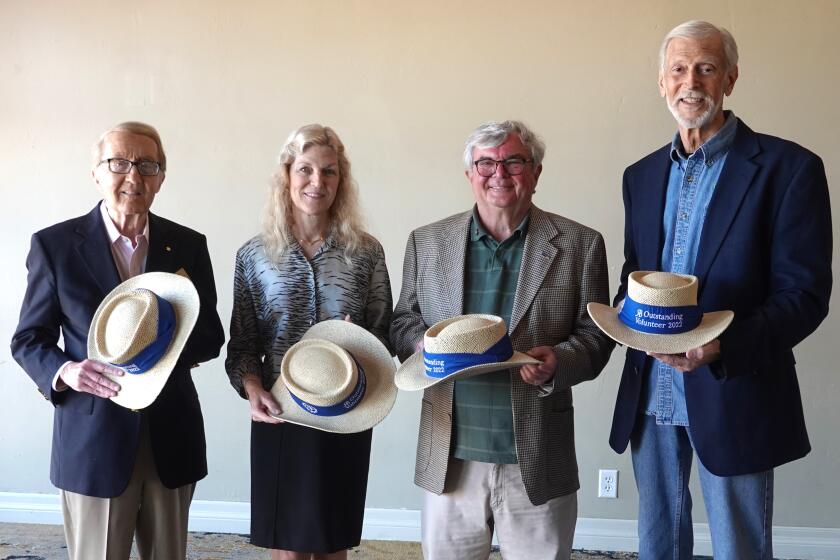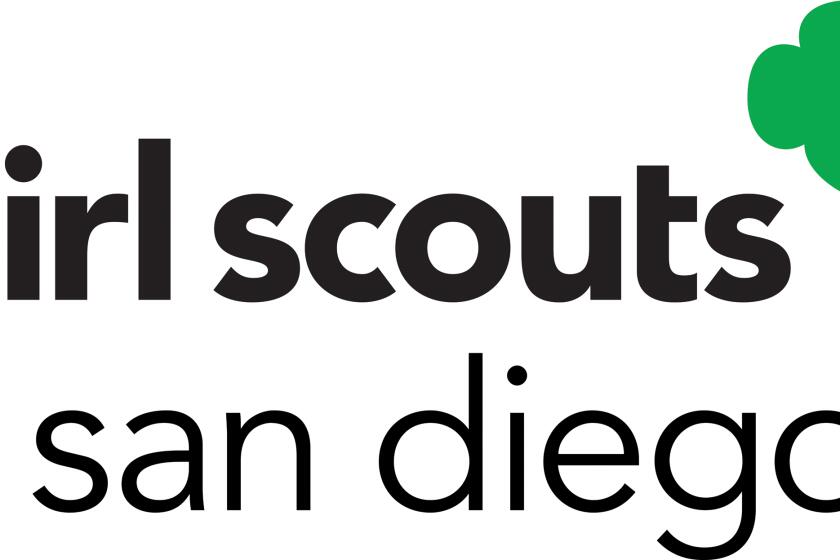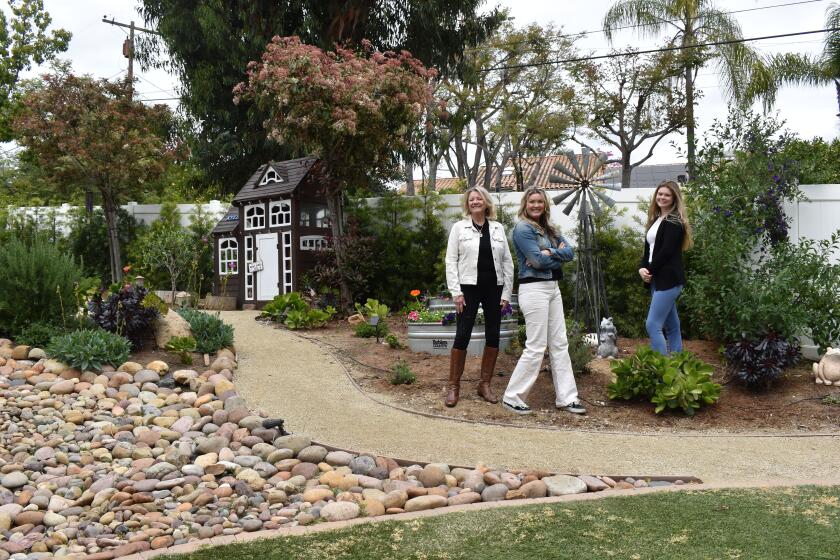Poway blood donor achieves rare 100-gallon mark
A Poway man reached a blood donation mark on Monday morning that few have achieved — contributing a combined total of 100 gallons of blood to save strangers’ lives, a form of volunteerism he began in the 1980s.
Ted Matthies is only the 15th San Diego Blood Bank donor to reach that milestone since the nonprofit organization began keeping its records in 1950, said Jackie Vella, San Diego Blood Bank Foundation director. Its highest donor — who is still contributing — has donated 135 gallons.
“It wasn’t even a consideration until recently,” Matthies said of the milestone. “It’s pretty special. All I was expecting (to celebrate it) was Red Vines and a balloon.”
Instead, a small celebration was thrown in his honor and Mayor Kevin Faulconer stopped by to present a proclamation naming March 9 “Ted Matthies Day” in the City of San Diego. There were decorations hung above the chair Matthies sat in during the two-hour milestone donation session, balloons, refreshments and he received a certificate and 10-gallon hat from blood bank officials. Newspaper and television interviews occurred while friends snapped photos.
“Mr. Matthies’ accomplishment is the mark of true dedication and caring for his fellow man,” said David Wellis, SDBB’s CEO. “The fact that we have people like him in our community who selflessly give the gift of life and expect nothing in return is inspirational. He is responsible for saving hundreds of lives.”
Only once since first donating in the 1980s did Matthies learn who was one of his recipients. He recalled that around 25 years ago while making one of his regular donations a young father came in to donate blood because his newborn son had a hole in his heart and needed surgery within a few days. However, he passed out as the donation procedure began and could not continue.
“I asked what was going on and found out about the baby with a hole in his heart,” Matthies said. “I asked, ‘Can he have (my blood)?’”
Since Matthies’ blood type is O negative — classifying him as a universal donor — and blood bank officials knew he was healthy due to his blood donations every two weeks, they labeled his donations specifically for the newborn’s use.
“He survived the surgery,” Matthies said. “Normally, we do not know where our blood is going.”
Matthies, who has lived in Poway for the last 16 years of his 33 in the area, said his first donation occurred when San Diego Blood Bank held a blood drive at the Board of Equalization’s San Diego office, where he has worked for the past 29 years. The now 52-year-old was in his 20s at the time and decided to participate. He then returned to the blood bank’s headquarters to continue and when the Sabre Springs center opened in 2009 was its first donor.
About 27 years ago Matthies learned his blood platelet counts are three times higher than typical donors, so he committed to doing a longer donation process so they could obtain three bags of his platelets per session instead of the typical one.
Leslie Eagan, SDBB spokeswoman, said whole blood donation takes around 30 to 45 minutes, but there is a longer process to “spin out” the components before it can be used. A platelet donation, which takes around two hours to collect through a process called apheresis, can be used sooner in trauma situations to stop bleeding and for cancer patients. But, if the platelets are not used within five days they must be discarded.
“They are in high demand,” Eagan said.
Matthies said he does not know why his body produces such a high quantity of platelets, but when he learned that he was eligible for the “super donor program,” decided to make the commitment, even though it meant setting aside two hours every two weeks for up to 24 times per year.
“It’s a way to give back, because I can,” he said, chuckling as he added, “My platelets are a gold mine.”
“It’s pretty cool. ... I’m very proud of him,” said Matthies’ wife, Colleen, who sat by his side during the procedure on Monday.
As for his advice to others, Matthies said, “If you are healthy and willing to donate, you should.”





